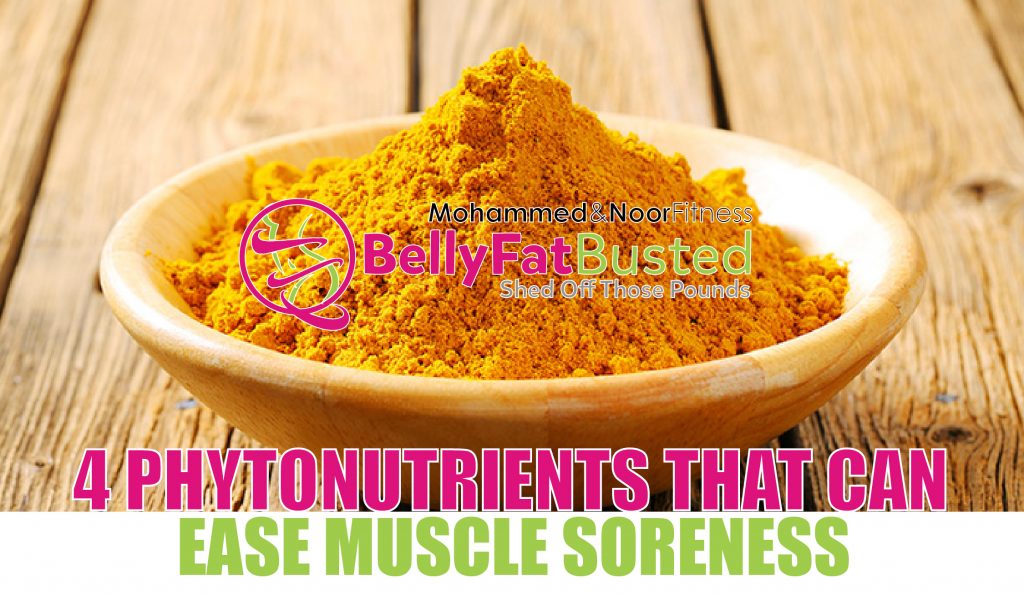
Whether it’s a consequence of a tough race, a long distance run, heavy resistance training, or taking on P90X, sooner or later we all have to deal with delayed onset muscle soreness (DOMS).
You know the feeling. After hitting your exercise bout you may feel great, even invigorated, but then you roll out of bed the next morning and even descending the stairs turns into a herculean effort. What comes next are days of continual physical and psychological discomfort, not to mention reduced exercise performance. Welcome to the world of DOMS.
Caused by high-intensity or unfamiliar exercise, DOMS peaks around 24–72 hours later and is associated with a 10–50% reduction in strength, with weakness lasting 4–14 days. Although the symptoms are painfully understood, the causes are not fully clear — but likely include muscle damage, inflammation, and oxidative stress due to intense training or competition.
Among exercisers and athletes, it’s common to search for strategies, including pharmacologic ones, to alleviate muscle soreness and impairment of performance quality. Nonsteroidal anti-inflammatory drugs (NSAIDs) like ibuprofen are used by athletes at all levels in an attempt to reduce symptoms, but excessive NSAID use has been associated with serious side effects, including gastrointestinal distress and cardiovascular complications.
There are now emerging nutritional strategies utilizing phytonutrients that may possess powerful postexercise anti-inflammatory activity and generally free of undesirable side effects. Here are some of the most promising.
Curcumin
Found in turmeric, this phytonutrient is responsible for the yellow color of curry and has been traditionally used in Asia for centuries as an anti-inflammatory agent. Curcumin can inhibit the transcription factor NF-κB,—a known regulator of inflammatory pathways within our cells. Early studies have shown curcumin to block markers of inflammation and improve deficits of performance in experimental models of downhill running.
A more recent study also reported favorable effects on DOMS, showing reduced muscle damage and lower pain intensity 48 hours after eccentric continuous exercise. (Eccentric meaning an exercise involving the lengthening of the muscle, as opposed to “unconventional or slightly strange.”) Another study reported that curcumin may reduce DOMS-related muscle pain following unaccustomed heavy eccentric exercise—the study focused on single leg jumps and single leg presses—with some evidence for enhanced recovery of muscle performance. Although this research is new, it seems promising and curcumin supplementation could offer individuals a way to combat the effects of DOMS and improve training quality and performance.
Quercetin
More exercise-related research has been conducted on quercetin than any other phytonutrient. Quercetin is naturally found in fruits and vegetables like apples and onions, and much like curcumin, possesses relatively powerful anti-inflammatory properties. Quercetin has been investigated as a performance aid and countermeasure to exercise-induced inflammation, oxidative stress, immune dysfunction and urinary tract symptoms.
Studies have shown a reduction of inflammatory markers in quercetin-treated cyclists over a 24-day period. When quercetin supplementation was combined with green tea extract, isoquercetin and fish oil, a follow-up study by the same group showed a sizable reduction in exercise-induced inflammation and oxidative stress after 3 days of heavy exertion in trained cyclists. This was also associated with lasting improvement in immunity markers, meaning it potentially improved immune function. While more studies are needed to understand the effects of quercetin on exercise-induced inflammation and muscle soreness, it’s certainly a phytonutrient to watch.
Ellagitannins
Ellagitannins are phytonutrients found naturally in fruits such as pomegranates. As with curcumin, and quercetin, ellagitannin research has focused on reducing exercise-induced inflammation.
A study from the journal Medicine and Science in Sports and Exercise examined the effects of nine days of an ellagitannin-rich pomegranate extract on muscle damage and strength performance recovery after heavy resistance training. The pomegranate treatment group had less exercise-induced muscle soreness and produced more isometric force in exercised muscle 48-72 hours after training.
A follow-up study by the same group examined the effect of 15 days of pomegranate juice supplementation on muscle soreness and strength following eccentric exercise. The results confirmed that pomegranate juice reduced muscle soreness and weakness, and improved strength recovery compared to a placebo.
Anthocyanins
Like ellagitannins, anthocyanins are large phytonutrients found in fruits such as berries, cherries, and grapes. Similar results of improvement in recovery have been seen using anthocyanin-rich tart cherry juice.
A study from the British Journal of Sports Medicine reported that subjects who consumed 12 oz. of tart cherry juice for five days prior to muscle-damaging exercise had significantly less strength loss than the placebo group throughout a 96-hour period. Another study found tart cherry juice reduced exercise-inflammation and improved strength recovery in marathon runners. Additional studies showed similar results for tart cherry supplementation: one following three days of simulated bicycle road-racing and the other following high-intensity, metabolically-challenging exercise.
The clinical and practical utility of tart cherry for improving exercise-induced inflammation and DOMS looks promising. Recently, at the International Society of Sports Nutrition Conference there were reports of an anthocyanin-rich tart cherry extract reducing muscle soreness and markers of muscle breakdown in endurance and resistance-trained athletes. Aside from benefits noted on DOMS, tart cherry juice has also shown positive effects such as reducing exercise-induced stress and in marathon runners. The same group observed benefits of tart cherry juice on sleep quality in healthy men and women over a seven-day trial, due to an increase in circulating melatonin.
Practical Implications
Maintaining muscular strength after DOMS-inducing exercise matters to recreational and competitive athletes alike, especially if they want to continue performing optimally. It’s also important for anyone who exercises and doesn’t want to wake up the next morning feeling sore and weak and unmotivated or unable to take on the next training bout effectively.
So far, efforts to reduce DOMS and loss of muscle strength have centered on the use of NSAIDs as well as physical strategies like temperature-based water immersion protocols, cryogenic chambers, hyperbaric oxygen, massage, recovery exercise, compressive clothing, and desperate praying. While some of these strategies may have benefits, promising nutritional strategies that utilize phytonutrients with distinct recovery effects have begun to emerge that may also be helpful, not just for athletes, but for anyone in the early stages of new and unfamiliar training regimens, making them well worth investigating for people of all fitness levels.




Leave A Reply